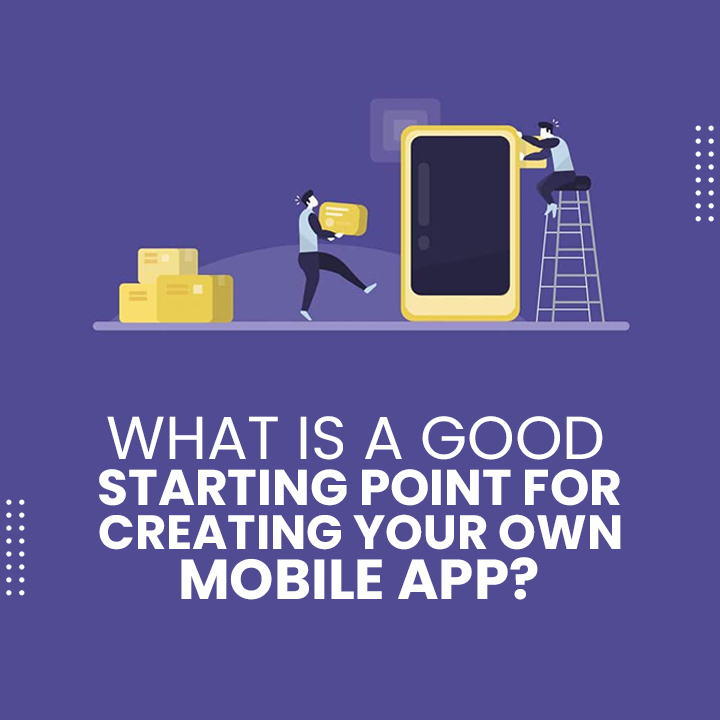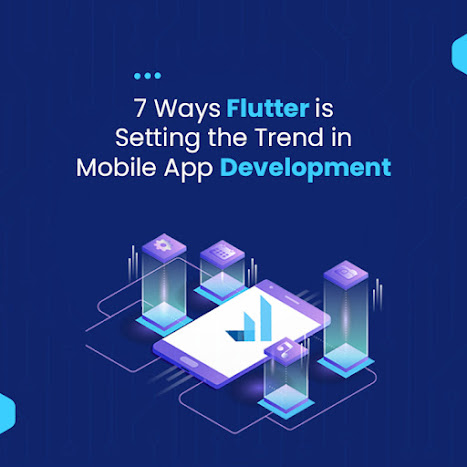What is a Good Starting Point for Creating Your Mobile App?
Let's get started!
1) Do Extensive Research on your Market:
The first step in forming all your decisions is conducting a thorough market study. It is essential to understand the latest offerings in the marketplace and apply this information to identify the gap that your app can fill. It will also provide a new and complete solution to the issue you're trying to solve.
A thorough market study should aid you in determining:
- What are some of your rivals?
- What's their strategy?
- How can you tell the strengths and flaws of the other app developers on the market?
- How are clients posting in their reviews and social networks?
- What is their distinct selling advantage?
Suppose you can answer the questions on these issues. In that case, you'll be able to avoid competitors and their mistakes, double up on the practical strategies, and define your unique perspective on the problem and the best route to solve it. It is possible to find millions of mobile applications, and this is your chance to make sure your app is unique.
2) Determine your elevator pitch and the target audience:
Can you define your app's purpose? What is the difference between your website's and specific uses? This is perhaps the most challenging task for business owners and marketers. Condensing your thoughts to a couple of clear and concise sentences is complex, yet it's one of the most important steps to ensure your application.
It is now the right moment to define:
- What is the primary function of the app?
- Can you describe what issues your app can solve?
- Who are the potential app users?
- What makes people interested in using it?
- What's the value of the added value when compared to mobile websites?
- What business goals can it aid you in reaching?
- What kind of audience can benefit from this?
- What is it that the public needs and desires?
Being honest in responding to these questions can ensure that you do not waste time and resources on unnecessary app features or target the wrong people.
3.) Choose between hybrid, native, and web application:
Choosing between hybrids, native, or web-based apps has a lot of implications for future creation and upkeep. This is why it's crucial to make use of your market research, as well as the purpose and purpose you've defined, so that you'll be able to make the most effective choice.
The primary distinctions between hybrid, native and mobile apps are:
- The languages they're developed in. This is influenced by your budget, desired timelines, and the existing expertise.
- Access to native APIs of the device. This is contingent on the device's capabilities you would like your application to use.
- The distribution method. This will significantly affect the process you promote the app and how you define the strategies for promotion.
- Multi-platform support. It will depend on your intended audience and the marketplace you wish to enter. You'll often need to be available on the App Store of Apple and Android's Play store.
Native apps are great for tasks that require a lot of force, such as gaming or using videos or images. However, web apps are the best solutions that need simple updates but don't need access to the device's native capabilities.
Once you've settled on your application's type, then you can more efficiently assign your resources and plan the entirety of your development project.
4) Be aware of your options for monetization:
A mobile app could play different functions for your company and the bottom line. Making money directly from the app is a clear one, but others could serve as an information source for your customers and indirectly support other aspects that comprise your sales funnel. This will improve the reach of your brand.
Which role would you intend your app to be able to play in your business? If you plan to earn money directly from your app. Now is the perfect moment to consider the models for monetization of apps:
- Freemium applications these are available for download at no cost; however certain features and content are locked and can only be purchased.
- Paid (premium) apps Users must purchase the app through the app store to use it. Because of the price barrier in this type of model and the need for mobile marketing, it is essential to show free apps' distinct and superior value.
- In-app purchases - This method uses the app to offer physical or digital items using a mobile-based retail channel for commerce.
- Subscriptions - This type of model has a lot in common with freemium applications, but it also offers the advantage of recurring income.
- In-app advertisements - This may be the simplest model because users have no cost. Like any other advertising platform, it's essential not to reduce user experience to get more advertising space.
- Sponsorships - - This type of model typically becomes feasible when you have a solid user base as it permits you to work with certain advertisers and brands. This is a win-win scenario since brands are paid for user actions, and your app can generate more interaction with the users.
5) Develop your app's marketing strategy and build buzz before the launch:
If there's a factor that has a significant impact on the app's performance, it's the planning to promote and increase its effects such as branding PR, pre-launch strategies, outreach, and the overall web presence. You may consider it too early to begin thinking about the marketing of your app before you've even started your development. But, your efforts will increase in the end if you get started building buzz around your app before it is available accessible in the app store.
It is the best moment, to begin with, these:
- Create your brand's identity. How will your name, color, logo, colors, and the tone of your content stand you apart from millions of apps and companies? Be sure to ensure consistency throughout your app and across every platform.
- Discover your channels. What is the place where your people socialize? Are they easy to reach via email or social media? Would they instead watch videos or written material? How long are they using their mobiles?
- Create content. Based on your responses to the previous step, you now know what your target audience is looking for and how to find them. Start planning your written or video content and distributing it to specific channels.
- Kick off your outreach. Who is the key influential in your field, big and small? Please spend some time reaching these people personally and giving them plenty of value to help get your app in front of their followers.
6) Develop a plan for app store optimization:
A number of the steps you've completed up to now, such as your market research, your app's distinct goal, and the strategy for marketing, are all factors that affect your strategy to optimize your store's app. This is the primary factor in finding your app in the store. More than 60% of apps are discovered through organic search. It is essential to adhere to the requirements of both stores and the best practices. Use this as a chance for your app to excel with its graphics, features, and unique purpose.
While you're unlikely to finish all ASO tasks in this stage (nor do you need to), this is the ideal time to sketch the final appearance and feel and make sure that your development aligns with your vision.
The most important elements to consider for optimization of the app store include:
- The name of the app is: It should be easily sellable and pronounceable distinctive, distinctive, and unique that is within the limits of length (50 characters on iOS 30 characters for Android)
- Keywords: This is only relevant to Apple as it's an extra space to define the terms pertinent to your application for metadata for your app.
- Icon: Choose an uncluttered color scheme, avoid many small details and choose to use contrasting colors and a simple idea
- Screenshots: Make sure you take five screenshots and utilize caption text to convey a story and draw attention to the app's benefits, including its style.
- Description: concentrate only on the initial three lines (before the 'More' ...' hyperlink) to make clear the main points, employ bullet lists, and include an appeal to action
The preview video must be brief and get right to the heart with a simple general message, which can work with any language. It is possible to create YouTube videos and then repurpose the material to use for ASO as well.
7) Be aware of the resources available to you:
It is ideal for making your announcement before the date of your launch to generate excitement around your event and get people to await it eagerly. This is the reason you have to begin discussions with your developers and technical teams as soon as you can. This will allow you to manage your entire project with greater efficiency and also assign suitable due dates to different stages of planning and development, which include:
- Use case(s) definition
- Mapping of the functionalities required
- Minimum viable product (MVP)
- Wireframing
- Selection of a programming language or platform
- Coding
- App design
- App analytics
- Testing
The early decisions you make in the app creation process will impact the development and business processes as time passes. Using an app maker doesn't require a degree in iOS development to build an iPhone application to be available on an iOS App Store. It's not necessary to study the software development process for Android apps, either. Another expense is the ongoing maintenance of the application. It will require constant monitoring, reviewing crash logs, and enhancing user experience based on feedback, and staying current with the operating system's updates. Understanding the resources you're working on will help avoid any emergency and delay further in the future.
8) Take security precautions:
Finally, you should add a privacy statement for your app in case it collects sensitive information from users. The policy must describe the type of information being taken and utilized. Many app developers focus on their apps and the idea that they overlook essential security aspects. However, security is a vital aspect to consider when you create an app or begin creating a new app. The security that your app offers is one of the most important factors, and you need to make sure it is built before the beginning of development. Your users' data can be your biggest asset, and you should make sure you have procedures that gather, manage, and store the information and handle any security threats that could arise.
The final thoughts regarding how to begin an app:
How do you start an application? There isn't a single solution to the question. The idea of the app alone will not suffice in this case. It's important to make the right decisions to succeed in the long haul. Before you begin planning new features and app updates, spend the time thinking about how users engage with the app. What is their method of accessing the app's in-app purchase? SoftCircles, LLC is the Best Mobile App Development company in Dallas and we are here to assist you with the development of your app. Keep visiting our website for more details.




Comments
Post a Comment